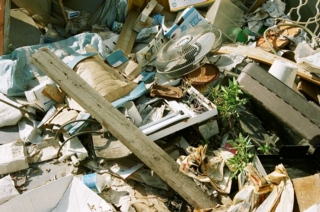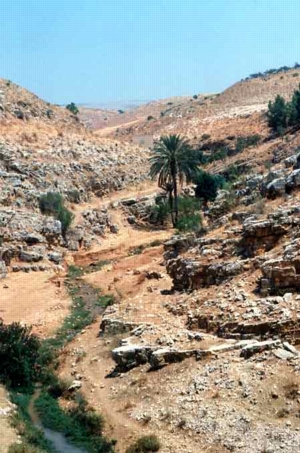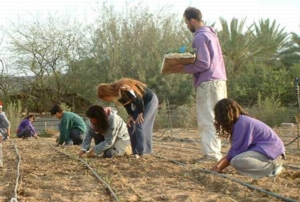 October 07
October 07
Creating a Sustainable Jewish Ecology
Ellen Bernstein
In December, 2004 Adam Werbach, a young Jew committed to tikkun olam, gave a stirring talk to the San Francisco Commonwealth Club pronouncing the death of environmentalism. Since Adam had served a short term as president of the Sierra Club, the leader of U.S. environmental activism, his talk shook the environmental movement
What Adam meant by the death of environmentalism was not that we no longer cared or should care about the environment, but that the way environmentalism as a movement had positioned itself in our society was existentially wrong. Today, the environment is considered by too many of us to be a “thing” that is separate from or outside of the rest of life; an “issue” that can be “fixed” through technological solutions or legislative changes. As a “special interest,” the environmental movement is considered distinct from, and often at odds with, other special interests that are all vying for the same people, attention and funding. Adam bravely talked to old-time environmentalists about the necessary death of the environmental movement as we have known it – in order to create the space for something new to arise – a movement that is more integrated and connected to regular folks and their everyday lives, and that is integral to diverse political agendas.
 I was gratified to hear Adam’s analysis. Thinking back on my spiritual journey, I could see how my own path reflected the “death of environmentalism.” In my teens and through college, I strongly identified as an environmentalist. In those days, I had “dropped out” of a conventional lifestyle. I could often be found trekking in the wilderness, navigating wild rivers.
I was gratified to hear Adam’s analysis. Thinking back on my spiritual journey, I could see how my own path reflected the “death of environmentalism.” In my teens and through college, I strongly identified as an environmentalist. In those days, I had “dropped out” of a conventional lifestyle. I could often be found trekking in the wilderness, navigating wild rivers.
Many people who become lifelong environmentalists started out as avid mountaineers or riverrats; they began their activism by fighting battles for their favorite mountain range or a particular species. But the problem with a wilderness-centric environmental strategy is that it can lead to a sense of superiority or isolation, a wilderness (good) vs. city (bad) mentality, and a special-interest orientation toward environment. Too often, this brand of environmentalist never comes down from the mountain to work among the regular folk who are just trying to make a living and get health insurance for their families. I recognized by the time I was 30 that I was spending too much time on the mountain and growing crotchety and misanthropic – not a good quality if what you really want to do is make the world a better place.
When I moved to Philadelphia, I realized I didn’t need to run away to a mountain-top to find paradise; it was right in my back yard – in the Wissahickon River, in my neighborhood and in the garden I would plant there. Within a few years, I had stopped thinking of myself an environmentalist. The word “environment” felt flat and lifeless to me. Moreover, I’ve always been very squeamish about labels, and have felt that the language of “environmentalist” sets up an “us against them” dichotomy, (often tree-huggers or pagans vs. corporate types), which alienates as many people as it attracts.
The language of “ecology” more accurately conveyed my sensibilities. Ecology literally means the study of ecos, the house, and all of the connections and relationships and processes of those that share the house. The house in this case is nature, God’s house; the house that humanity and plants and animals share in common.
A Jewish Ecology
In those days I was just beginning to explore Judaism and the Jewish ideas I was learning resonated deeply with the ecological ideas I already embraced. We Jews believe in One God and we share together in one earth. Either way you look at it, theologically or ecologically, we are all connected to one another and to all of nature and the earth’s natural processes. And because we are inextricably bound together, whatever actions we take, whatever thoughts we think, yield consequences in the world. The Sh’ma – Our God is One – the watchword of our faith – could just as well be the watchword for the discipline of ecology.
While God is the source of our lives spiritually, nature is the source of our lives in the material plane, and being mindful of the godliness in everything is the first step of an ecological lifestyle.
Judaism, I found, like many other indigenous traditions, is necessarily an ecological, sustainable tradition. All traditions that rise up out of the land, all indigenous traditions like Judaism, are interested in sustaining a people into the future. Both Judaism and ecology require a long-term vision; they are concerned with insuring a future for generations to come; you can’t use up all your resources; you can’t wantonly pollute the earth or heat up the atmosphere, if you want to insure a future for your children. And like ecology, whose concern first and foremost is the ecos, the house, Judaism is interested in preserving the home--our earthly home. And so in Judaism we have laws that forbid the cutting down of fruit trees and the polluting of waterways, and edicts that describe where to locate tanneries and how to plan towns and where to plant gardens and where to browse the sheep. Our whole system of social justice and tzedakah grew out of a landed consciousness. Without this kind of ecological appreciation, our culture would have dried up thousands of years ago.
 It’s not just Jewish ideas that are ecological; the day-to-day lifestyle that an authentic Judaism cultivates is also ecological. The way we spend our time, like the way we spend our money, has a direct impact on the world we inhabit. Abraham Joshua Heschel said that we moderns use time to exploit space. A Jewish life structures itself around different types of time consciousness. There’s plenty of time for working and doing, but there are also times dedicated to appreciating and being. Without these “time outs,” we become habituated to life’s miracles, and too often end up mindlessly exploiting nature.
It’s not just Jewish ideas that are ecological; the day-to-day lifestyle that an authentic Judaism cultivates is also ecological. The way we spend our time, like the way we spend our money, has a direct impact on the world we inhabit. Abraham Joshua Heschel said that we moderns use time to exploit space. A Jewish life structures itself around different types of time consciousness. There’s plenty of time for working and doing, but there are also times dedicated to appreciating and being. Without these “time outs,” we become habituated to life’s miracles, and too often end up mindlessly exploiting nature.
In the same frame, when we eat, we take the time to offer a blessing for our food, psychically returning our love back to the universe that supports us. Our holidays keep us tuned in to the seasons and the phases of the moon and our prayer cycle offer us opportunities every day to remind us of the source of our life and to sustain us through life’s challenges. Shabbat, the centerpiece of a Jewish life, offers a day a week devoted to stopping, to rest. One day a week we get to indulge ourselves in no-“thing”-ness and count our blessings, hoping they will stick and keep us on the right path for another week. These days my “ecological” identity is simply Jewish, and I use the term “simply” consciously here.
My life is marked by simple pleasures. I enjoy buying fresh local produce from farmers’ markets; the food tastes better. Buying local connects me to the place in which I live, and to my friends who I invariably run into at the market, and gives me an opportunity to help save local farms. I automatically buy compact fluorescent lights and a myriad other ecologically sound products. I am gratified for the opportunity to purchase a few art/craft pieces a year to wear or place in my home; it enriches my life to remember where my clothes come from and have a connection to the people who make, and I am happy to support their work. I avoid the car whenever I can, preferring to exercise my legs and breathe fresh air. And I do all these things gratefully and happily, because I prefer to live this way--not because of some moral compulsion. These days in this frenetic crazy world, I need my own world to be as uncomplicated as possible.
Sustainability at Shul
As a Jew, I’m eager for the day when Jewish institutions will begin to integrate these values in their practices as well. Quick environmental fixes and sound bites are not enough. Recycling is not enough. Charging an overtaxed social action committee to do an environmental project is not enough. All of these activities reflect an “environmental” mindset, not a sustainable ecological one. Jewish institutions need to undergo a process of institutional change from the inside out so as to rise to the challenge of this ecological age; the boards need to change; the fundraising committees, the sisterhoods, the finance committees all need to see Jewish institutional life in the context of a long term plan for sustainability. Ecological thinking needs to become a more integral day-to-day part of Jewish institutional life.
I’m waiting for synagogues and Jewish institutions to feature locally grown or organic produce at their kiddushes and in their cafeterias. I’m waiting for them to re-examine all the systems of their buildings and their purchasing, so that they line up with ecological and Jewish values that abhor waste and encourage sustainability. I’m waiting for them to purchase wind energy and install solar panels, and to start car- coops. I’m waiting for Jewish simchas – bnei mitzvah and weddings – to reflect these values. I’m waiting to see gardens grow up on the campuses of Jewish institutions and to see Jews – young and old – tending them and communing in them – gardens which can provide food for
 |
|---|
Community gathering, planting tomato seedlings at Kibbutz Neot Smader |
Every challenge brings with it abundant opportunities. My prayer is that the Jewish community can rise to this occasion, and as it does so, to be blessed: Blessed by attracting (and retaining) young Jews proud to be Jewish, proud that their Judaism speaks to the issues of these times, blessed with young people who will grow up with a passion to build a more sustainable world, and blessed – as always – with more financial resources to further the great work of repairing the world.
Ellen Bernstein founded Shomrei Adamah, the first national Jewish environmental organization, and is the author of The Splendor of Creation: A Biblical Ecology. She teaches and is developing a program in Judaism and Ecology at Hebrew College and can be reached at ebernstein@hebrewcollege.edu.









